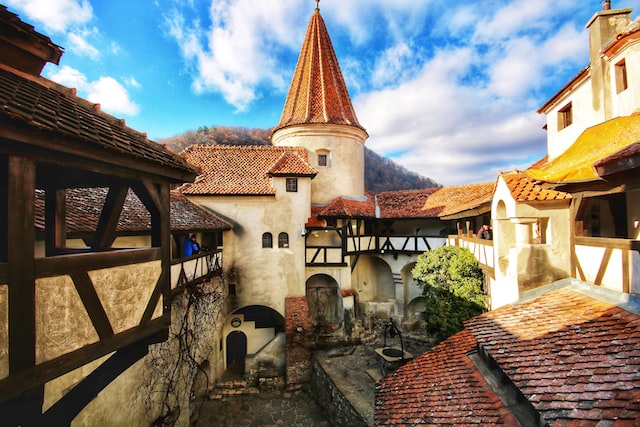Blue Color Jobs

What does it mean by Blue color jobs?
The term “blue-collar jobs” typically refers to occupations that involve manual labor or skilled trade work, often in industries such as manufacturing, construction, and transportation. These jobs often involve working with one’s hands, using tools and equipment, and performing physical tasks, as opposed to white-collar jobs, which typically involve office work, professional or managerial roles, and more cognitive tasks. The term “blue-collar” originated from the color of the work shirts commonly worn by manual laborers.

Which country provides Blue color jobs?
Blue-collar jobs are available in many countries around the world. The specific industries and types of jobs that fall under the category of blue-collar work may vary from country to country, depending on the economy and the labor market. Some countries may have more manufacturing or construction jobs, while others may have more jobs in transportation or other industries. Some examples of countries that are known for providing blue-collar jobs include the United States, China, Germany, Japan, India, and many others.
What kinds of Blue color jobs are available in Europe?
There are various kinds of blue-collar jobs available in Europe, depending on the country and the region. Some common examples of blue-collar jobs in Europe include:
Manufacturing jobs: Many European countries require physical labor, such as assembly line workers, machine operators, and quality control inspectors.
Construction jobs: Europe has many jobs available for skilled tradespeople, such as carpenters, masons, electricians, plumbers, and welders.
Transportation jobs: Europe has many jobs available in transportation, such as truck drivers, delivery drivers, and railway workers.
Agriculture jobs: farm workers, agricultural machinery operators, and other related positions.
Maintenance jobs: There are maintenance and repair jobs, such as building maintenance technicians, HVAC technicians, and machine repair technicians.
These are just a few examples of the types of blue-collar jobs available in Europe.
Basic salaries for Blue color jobs in Europe?
The basic salaries for blue-collar jobs in Europe can vary widely depending on the country, the industry, the job type, and the level of experience and skill required. Here are some rough estimates of basic salaries for some common blue-collar jobs in Europe based on data from Eurostat:
Manufacturing jobs: The average basic salary for a manufacturing worker in Europe is around €7,00 to €1,000 per month, but this can vary widely depending on the country and the type of manufacturing job.
Construction jobs: Construction workers in Europe earn an average basic salary of around €7,50 to €1,200 per month, but again, this can vary depending on the specific job and the country.
Transportation jobs: The basic salary for transportation jobs in Europe can range from €1,100 to €2,500 per month, depending on the type of job and the country.
Agriculture jobs: The basic salary for agriculture jobs in Europe can range from €6,00 to €1,500 per month, depending on the specific job and the country.
It’s important to note that these are rough estimates and the actual basic salary can vary significantly depending on the specific circumstances of the job. Additionally, other factors such as benefits, bonuses, and overtime pay can also affect the total compensation for blue-collar jobs in Europe.

What are the basic qualifications required to apply for Blue color jobs in Europe?
The basic qualifications required to apply for blue-collar jobs in Europe can vary depending on the specific job and industry. However, in general, some common qualifications that may be required or preferred for blue-collar jobs in Europe include:
High school diploma or equivalent, such as a vocational training certificate.
Technical or vocational training such as apprenticeships or trade school programs, to gain the necessary skills and knowledge for the job.
Physical fitness requires lifting heavy objects, working in challenging environments, or standing for long periods.
Relevant work experience: Some blue-collar jobs may require relevant work experiences in the industry or field, such as previous experience in manufacturing, construction, or transportation.
Licenses or certifications: a commercial driver’s license for truck drivers or a forklift operator certification for warehouse workers.
It’s important to note that the specific qualifications required for blue-collar jobs in Europe can vary widely depending on the industry, the job type, and the country.
I hope that helps! Let me know if you have any other questions.
Get fresh content from goimmigrants
EXPLORE BY TAG
Work Profile You like to Apply for
Newsletter
Subscribe to our newsletter to keep upto date with us.
Categories
- Nursing & Caregiver Jobs in Germany
- Mauritius Study Visa
- Delivery Jobs
- WHY MOVED TO CROATIA
- Romania is a gateway to Europe
- Nursing job in Europe
- Labor market in Europe
- Blue color jobs
- What’s new in Europe
- Companies
- Labor market
- HR
- Clients
- Videos















